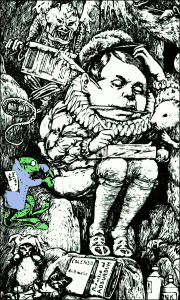 Bankruptcy can provide relief from the tax man.
Bankruptcy can provide relief from the tax man.
Some taxes and penalties are dischargeable; those that can’t be discharged can be paid without interest in Chapter 13.
The automatic stay in bankruptcy stops even collection actions by taxing authorities, including garnishment and seizure.
These provisions of the law apply equally to state and federal tax agencies.
How much relief?
Which taxes can be discharged in bankruptcy depends on a number of factors including
1) the kind of tax involved,
2) the age of the tax,
3) whether a return was filed, and
4) whether the tax was recently assessed.
The three rules describe taxes that can be erased in bankruptcy:
1) unsecured income taxes that were first due more than three years before the bankruptcy is filed, 2) for which a timely and non fraudulent return was filed, 3) that were assessed more than 240 days before filing can be discharged in full in any chapter of bankruptcy.
More on the importance of filing the return even if you can’t pay the tax right away.
Offers in compromise
An offer in compromise may be a better solution when the priority tax (recent taxes or trust fund taxes) is too large to pay off in a Chapter 13.
The taxing authorities will consider an offer in compromise then there is doubt about the taxpayer’s liability for the tax or when there is doubt that they could collect the full amount of the tax.
Often an offer in compromise is designed to get the taxpayer to tap family or illiquid assets that the government couldn’t otherwise reach to settle the debt.
In summary:
This is only a summary of the treatment of taxes in bankruptcy. The effect of recent tax assessments, offers in compromise, and amended returns have been omitted for simplicity.
The subjects of taxes in bankruptcy is complex: for every rule, there is an exception or an additional wrinkle that isn’t obvious.
Be certain to bring these issues to the attention of any bankruptcy lawyer you consult.
If you have tax troubles, make sure to get advice from an experienced bankruptcy lawyer. This is not territory for the cheapest lawyer in town.
Read more about bankruptcy and taxes
Frequently asked questions about taxes in bankruptcy
Chapter 13 as a tax tool
No tax consequences when you file bankruptcy
How to select a bankruptcy lawyer
Image in the public domain: the tax collector from Lewis Carrol’s Hunting the Snark
